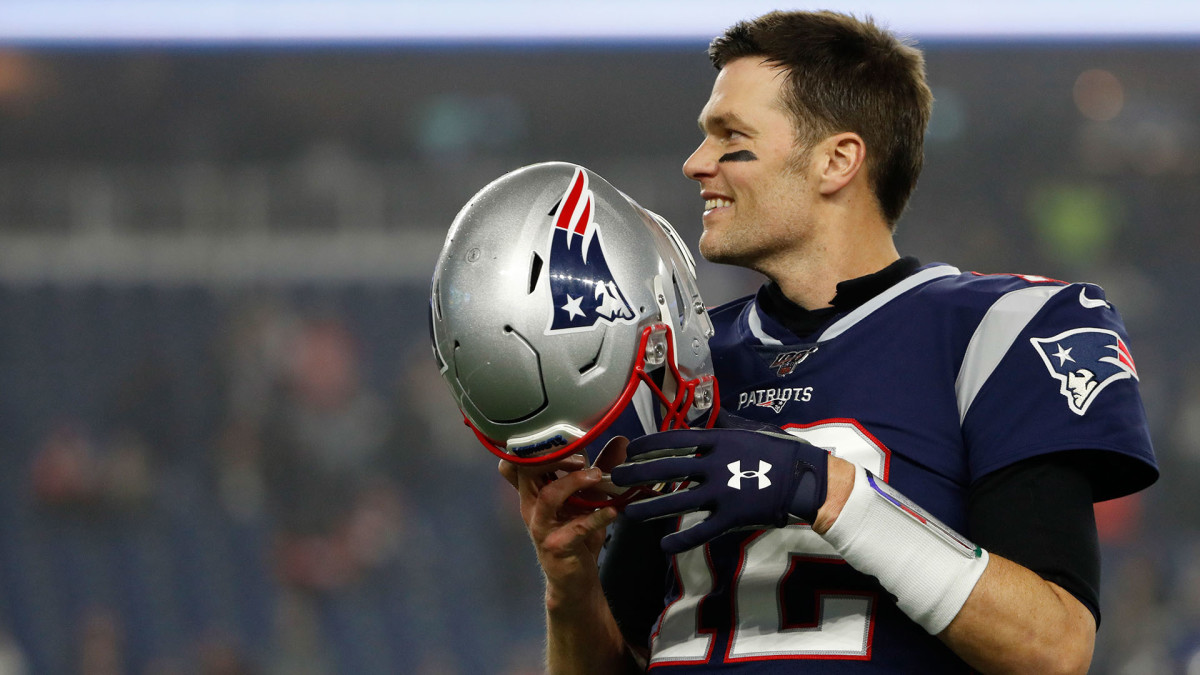Tom Brady Spent Years Playing for Less—and We Might Never Know Why
Tom Brady has retired. We think. For now at least, I am taking him at his word, but I have seen a similarly-situated player “unretire” before (Brett Favre). I do believe Brady wants to focus on family and other business ventures. He will be successful in whatever he chooses to do; his DNA is full of self-motivation and self-discipline, two traits that I believe to be drivers of success.
If Brady does return to football, it won’t be with the Bucs; that (pirate) ship has sailed. As for speculation about Brady joining his hometown 49ers, that would surprise me. They mortgaged the future for a quarterback (Trey Lance) in April. Could they delay the Lance era for Tom Brady? Sure, but do the 49ers or Brady really want a “keep the seat warm” situation? Also, with the 49ers or any team, there are logistics that would have to be worked out where Brady would have to fit salary cap–wise and deal with the Bucs in terms of him coming off of their reserve/retired list, etc. It could happen, but there are a lot of moving parts.
Although playing in the NFL has been half of Brady’s life, I do think that when he is retired—fully retired—we will not see him much. I see him more in Andrew Luck mode than, say, Peyton Manning mode. When Luck retired, I was sure he would not be around the NFL or its teams again; there was too much life out there for him, too many places to see and things to do. I see Brady similarly, not as nerdy or philosophical as Luck, but interested in a bigger life than football.
As for the “never say never” line, I get it. People ask me all the time if I would come back to work for another NFL team (or work again for the Packers), and I usually say “never say never, “ but I don't really mean it. The NFL part of my life was a nice chapter, but only a chapter. And I get the sense Brady feels as I felt, that he has many other chapters to write.
Now to the business of Tom Brady…

The “Taking Less” Mystery
Brady, of course, will be an immediate Pro Football Hall of Famer when eligible. He will not, however, be a Business of Football Hall of Famer.
Despite career earnings of nearly $300 million, Brady’s business of football legacy will be as someone who—for reasons that remain a mystery—consistently and continuously did not (or would not) maximize on-field earnings during his two decades in New England. I have heard all the reasons advanced why Brady did so, but I don’t buy any of them. Here are some…
• He wanted to win, and allowed the Patriots to spend around him. No. This requires an understanding of “cap vs. cash.” All elite quarterbacks are willing to take less cap to allow the team to have short-term cap room, restructuring to push out cap proration into later years, and Brady did in both New England and in Tampa. But here is the difference: Not only did Brady sacrifice Cap, but he also took less cash! No other elite quarterback has done that. That doesn’t help the team around him as much as it helps ownership, as it simply lowered the Krafts’ labor expense every year.
• He makes so much money off the field. No. Most superstars make a lot of endorsement and investment income, but not at the expense of their on-field earnings. And Brady hardly did any endorsements while under the 20-year reign of Belichick.
• He has a supermodel wife that makes more than him. Please. This suggests Brady would have negotiated more aggressively had his wife been, well, normal.
• He was being paid under the table or had some secret deal with the Krafts.
Um, that is verboten in the NFL and would trigger penalties far beyond what the Patriots experienced with Spygate and Deflategate.
We know that Brady took less money to play football in New England. We just don’t know why.
How Much Less?
Let’s put aside the early seasons in New England when Brady was either not playing or playing on relatively nominal contracts.
From the time Brady started making “real money” until the end of his Patriots tenure—a sixteen-season span ranging from 2004–19—Brady had career earnings of $241 million, an average per year (APY) of roughly $15 million.
Let’s contrast that number with two quarterbacks who have been very much in the news lately.
Putting aside his (massive) rookie contract, Matthew Stafford played another eight seasons with the Lions, from 2013–20. His eight-year earnings there were $188 million, an APY of $23.5 million.
Aaron Rodgers will have played fourteen seasons (2009–22) of post-rookie contract earnings after the upcoming season. Even assuming his contract is not upgraded for the coming season—which it will be by the Packers or another team—his earnings will be just under $300 million, an APY of over $21 million.
These are just two examples of many similarly situated players that have consistently outpaced Brady in NFL contract earnings, by margins of over $8 million and $6 million, respectively, per year!
Was Brady “better” than these players in some or all of these years? Perhaps. Is Brady the best of all time? Perhaps. But one thing is clear: For the bulk of Brady’s career he has consistently and continuously taken less money than similarly-situated elite quarterbacks. The evidence is crystal clear. We just don’t know exactly why.
The mystery of Tom Brady’s NFL earnings will be a lingering and perhaps never-resolved topic in the Business of Football.
More NFL Coverage:
• Brandt: The End of the Rodgers Era Is Imminent
• How Tom Brady Made Greatness Seem Routine
• Offseason Primer: Rodgers, Wilson, Franchise Tags and More
